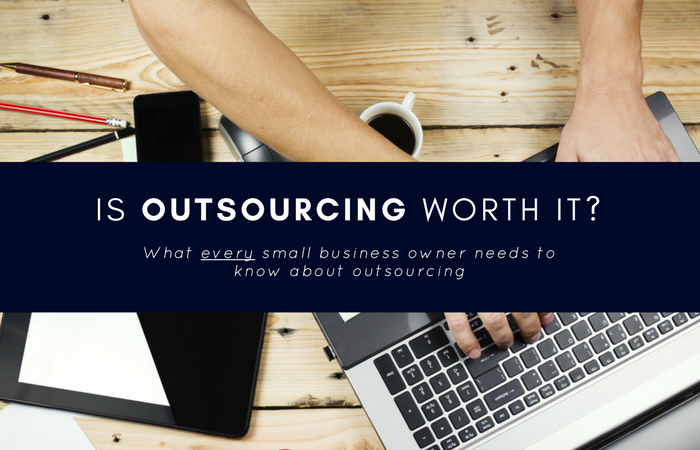In China, sourcing can be tricky. There are plenty of risks that come with managing a product from its creation to its delivery in your warehouse. But there are also many opportunities to increase profit margins and make your sourcing experience more efficient. In this guide, we’ll discuss when outsourcing is worth it. The benefits of outsourcing and how you can manage risk when outsourcing.

Section: What is outsourcing?
Outsourcing is when you hire another company to complete a task that you can’t do internally. For example, if you want to manufacture your product but don’t have the necessary facilities in-house.Then outsourcing would be a good option for you. It’s also important to note that not all outsourcing is created equal. There are different types of outsourcing based on your needs and what type of product or service you’re looking for.
There are three main types of outsourcing: business process outsourcing (BPO), ITO and knowledge process outsourcing (KPO). BPO is when an external company handles a specific aspect of your business.Such as customer service or finance. You might also use them to help manage your technology systems or security needs. It is worth noting that BPO has become increasingly common in recent years. Because it allows companies to focus on their core competencies while completing their work.
ITO is when you outsource all of your IT needs. This is especially helpful if you are starting a new business and do not have any technical skills. KPO refers to external companies handling non daily tasks that require interpersonal interaction. For example, customer service or research.
Section: When should you outsource?
There are several reasons why companies choose to outsource:
-
To reduce overhead costs
-
To expand into a new market or territory
-
To increase productivity and efficiency
-
To improve quality control and customer service
-
To focus on core competencies
-
To gain access to technology you don’t have


Section: The benefits of outsourcing?
– You can focus on what you do best and outsource the rest.
– You can expand your business into new markets or territories with lower overhead costs.
– You can increase productivity, efficiency and quality control by outsourcing non-core functions.
– Your company will be more flexible to changes in the market and industry trends.
– You will have access to a wider range of technology and expertise than your in-house staff can provide.
– You can reduce costs by outsourcing functions that are not part of your core competency.
There are many benefits to outsourcing your business. The most important benefit is the ability to focus on your core competencies. By outsourcing some of your tasks. You can focus on what you do best and improve the quality of your work.
Section: When outsourcing is worth it?
In most cases, outsourcing is a worthwhile undertaking. It can help your enterprise develop faster and more efficiently. At the same time, it allows you to acquire professional knowledge, which you will not be able to afford internally. However, there are some situations where outsourcing might not make sense for your company. If your employees are engaged in professional tasks that require specific industry knowledge, outsourcing these tasks may not be meaningful. You should also pay attention to the cost of outsourcing services and hiring full-time employees. Sometimes, hiring someone is cheaper than paying for external assistance on a monthly or annual basis.
When you’re deciding whether to outsource or hire. It can be helpful to make a list of all of the tasks you need done and then compare that with your current staff. If there are gaps in knowledge or availability, then outsourcing may be a good solution for you.
If you decide to outsource. Make sure that you have a clear understanding of what tasks will be outsourced and how much they’ll cost. Equally important is. Based on the industry and its needs, consider whether outsourcing these tasks is meaningful for the company. If you have employees who do specialized tasks that require specific knowledge of the industry. Then it may not make sense to outsource those tasks. You should also keep an eye on the costs of outsourcing services versus hiring full-time employees.sometimes it’s cheaper to hire someone than pay for outside help every month or year.

Section: How to manage risk when outsourcing?
Managing risk when outsourcing is an important part of running a business. There are many risks involved in outsourcing. But the most common ones include not having the right people for the job, the quality of work not meeting expectations and communication breakdowns. When outsourcing, it is important to have clear goals and expectations with the team. This way, both parties can reach an agreement on what needs to be done. You should also regularly check in with them to make sure everything is going according to plan.
You should also regularly check in with them to make sure everything is going according to plan.If you notice any dangerous signals, such as poor communication or quality issues, you should immediately resolve them. This way, it won’t become a bigger problem in the future.
There are many ways to manage risks when outsourcing. But the most important thing is to have a reliable contract that clearly states the expectations of both parties. And how to handle any issues that arise. If you hire an outside company or individual, make sure that they have insurance in case there’s damage to your property. You should also establish regular registration. This way, both parties can discuss any issues that arise during the entire outsourcing process.
Section: The risks of outsourcing offshore.
Offshoring has its own set of risks, and it’s important to be aware of them before you decide to outsource. The most obvious point is that if you send data or other sensitive information overseas. There is always a risk of loss or theft. This isn’t just limited to physical data storage. Any time someone else has access to your information, they could potentially use it for malicious purposes. Therefore, you need to ensure that the people processing your data have secure servers. And will not share any content with others without permission.
The other major risk of offshore outsourcing is that you’re no longer in control of your data. This may lead to the company handling it making mistakes or doing unexpected things. This may cause problems for your business.If someone loses a client file because they accidentally sent it to the wrong person. For example, that could lead to some very real financial losses.


Section: How to minimize your risk when outsourcing?
If you decide that outsourcing is the best solution for your business, there are several ways to minimize the risks.
First, make sure that whoever you choose has secure servers. And won’t share information with anyone else without your permission. You can also check their privacy policy. To ensure that they have clear regulations on the situation when Data breach occurs.
Next, please ensure that your contract clearly states if there are any issues. How much you will pay, and how much the supplier is responsible for Data breach.
Finally, check their past history with other clients. Check if they have a good record of information security.
Section: How to get the most value out of your outsourcing?
When you start outsourcing, you’ll want to make sure that you get the most value out of it. One way to achieve this is to ensure that your contract clearly states the type of service provided. And the cost of each service. You should also make sure that your contract includes a list of specific milestones that need to be met before payments are made.
This will help you to make sure that your vendor is doing what they are supposed to be doing. Another way to maximize value from outsourcing. Ensure close communication with suppliers throughout the entire process.